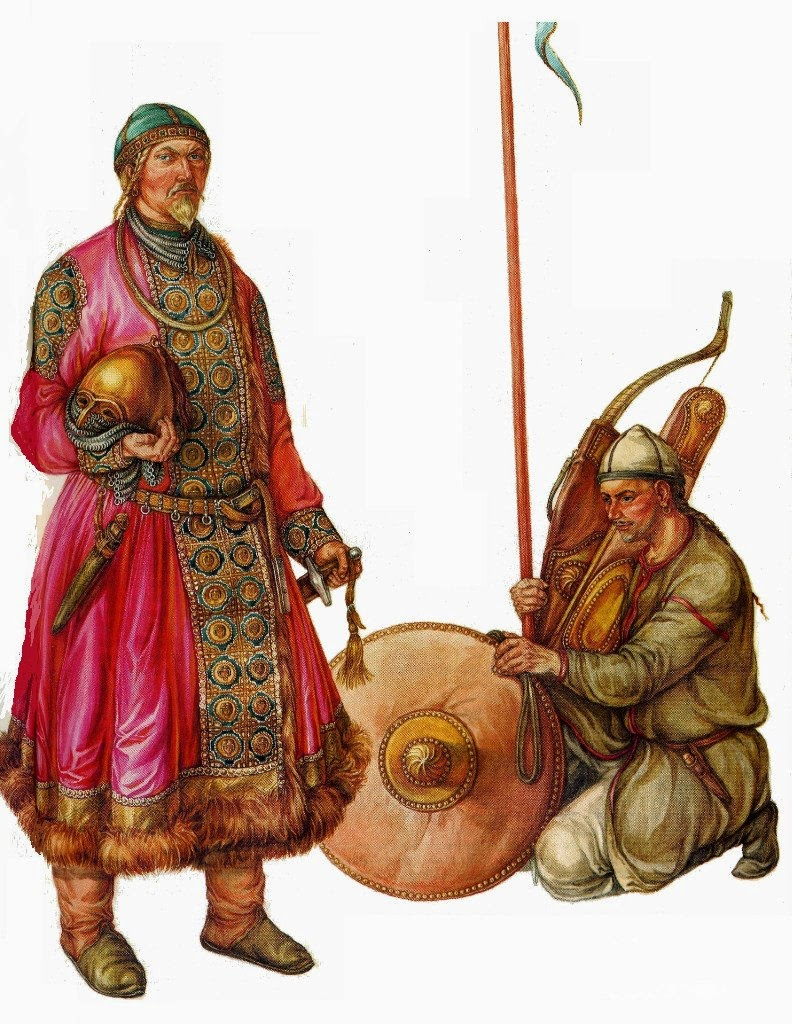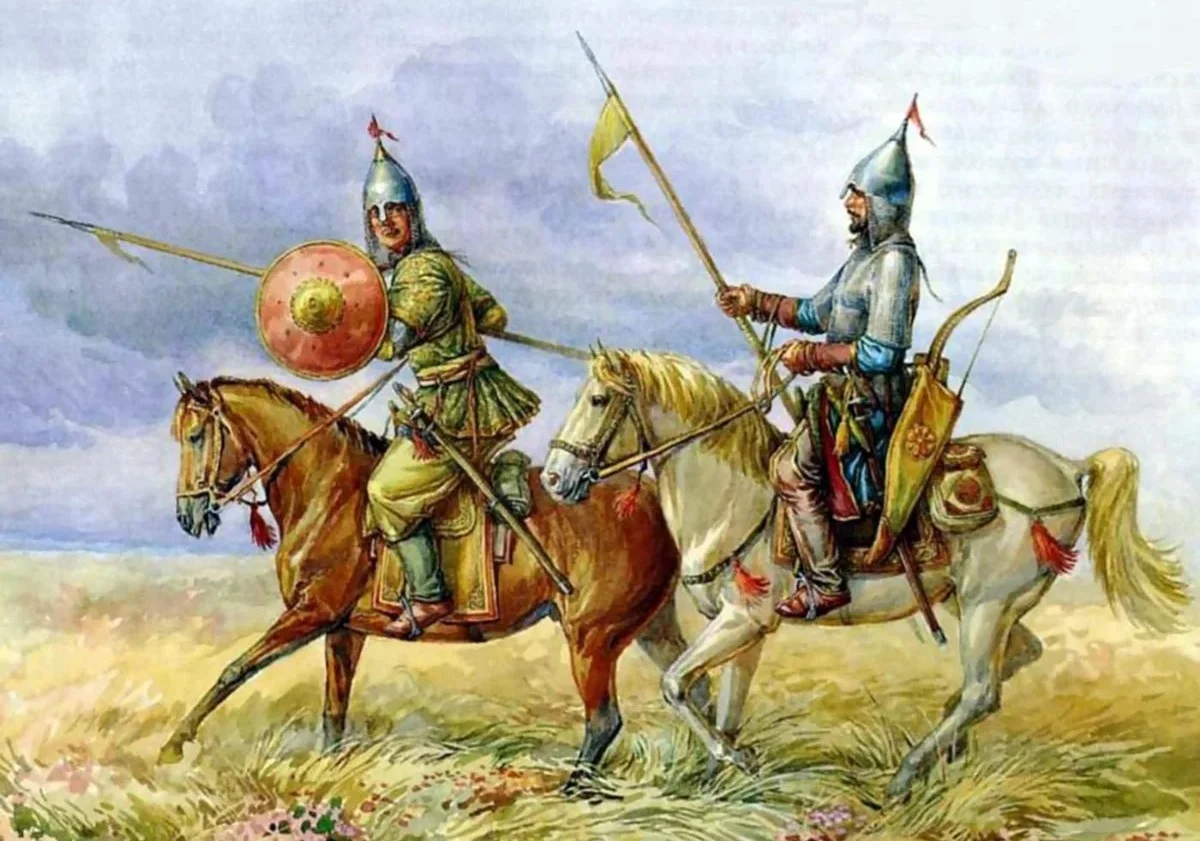The Kipchaks became the progenitors of several modern Turkic peoples, although they did not survive as a separate people, but became part of other Turkic peoples. For example, the tribe Kypshak is in modern Kazakhs, Kypsak — in Bashkirs, Kypchak — in Kirghiz, Karakalpak and Altai. Note that I write kipchaks not by mistake, but because in Russian there is no «s» after «k», always «i».
From ancient times Kipchaks in Russia were called Polovtsians. Why?
The first version, which immediately comes to mind, Kipchaks — from the word field. And the Cumans’ steppe — the Desht-i Kipchak — was once called the Wild Field. That is, maybe the Cumans are synonymous with the word steppe man?
There is also a version of E. C. Skrzhinskaya. She suggests that the word Polovtsy comes from polovatsi — so in Novgorod called people living on the other bank. Mol, Russians lived on the right bank of the Dnieper, and Kipchaks — on the left. But it does not correspond to historical facts.
There is also the word hollow, which means «empty inside». Maybe the steppe was also called so and its inhabitants?
Now most scientists share the version put forward by A. Kunik in 1875. In Old Russian there was a word polovy — translated as «yellowish, straw-colored», from the word polova. By the way, it is perfectly alive today. It is the same as chaff — the remnants of ears, stems and other waste during threshing. There are words related to chaff in other Slavic languages: in Church Slavonic there were words plava — «straw» and plavý — «straw», in Czech and Polish there are plavý and plowy — also «straw».

Is it possible that the Kipchaks were called by the peculiarity of their appearance — light, straw-colored hair?
In medieval German documents Kipchaks were called falb, and in Armenian sources — khardesh. And guess how it is translated? Same as «light yellow.» Even other Turkic tribes called Kipchaks sary-Kipchak («red-haired Kipchaks»). So most likely Kipchak-Kipchaks-Kipchaks really were light-haired.
By the way, about the origin of the name — Kipchaks — there are even more versions, but there is no one universally accepted or at least one that is shared by the majority of scientists.
In the ancient Turkic language there was a word qïvçaq, formed from the root qïv «happiness; good luck», which can be translated as «lucky», but for some reason it meant the opposite «unhappy».
In a number of Turkic languages, such as Tatar and Crimean Tatar, the word kipchak is translated as «wheel», «wagon».
There is an assumption that the name Kipchak means «small Sakis».
Perhaps it is connected with the word koby — «empty, worthless, deserted».
A barren tree in some Turks was called «chypchak»
There are other versions.
It is believed that the Kipchaks themselves called themselves Kumans, but historians also argue about this.
So this is such an article, which does not give unambiguous answers, but only offers you existing versions.
